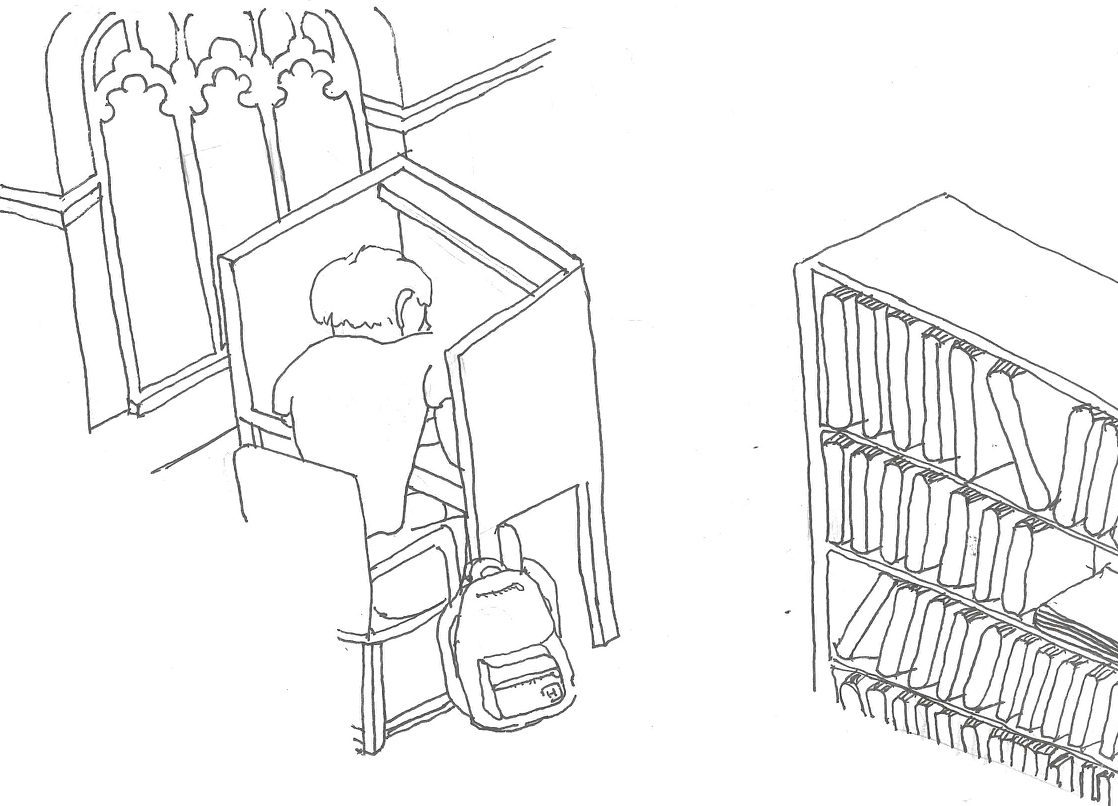Gilbert Norwood once wrote in “Too Many Books” that Caesar was right to let the Library of Alexandria burn to destruction. His logic seems to make sense – if books were not read or used, what’s the point of letting them occupy a space that could be made into something more productive?
I remember reading Norwood on the third floor of the library at the end of the last academic year. The magnificent chandeliers, the wooden furniture, and the bookshelves that held canonical works throughout human civilizations made the space exuded a sense of gravitas – it was an intellectual oasis where knowledge was born and ideas collided.
So, like most students, I was surprised and saddened to see the bookshelves being removed from the third floor. However, instead of lamenting the passage of the third floor, we should focus on a more important task at hand: building intellectual communities at Hill.
Headmaster Lehman called for more “offline events” at Convocation this year. While ideas such as free food, dances, and parties may seem attractive, we should push towards connections of the mind instead of mere exchange of hormones. That means fostering an environment where the exchange of meaningful and impactful ideas is at the forefront of student life; that means bursting the Hill Bubble to seek the greater world.
When Dr. Charles Garrettson ’71 departed campus last year, he left the Socratic Symposium and the Free Friday Seminars for us. Students gathered in his house to have tea, immerse in Plato or Lao Tzu, and enjoy each other’s company in a vibrant intellectual community. That is what we need – true connections that extend beyond physical limits.
In our pursuit of “most traditional, most innovative,” it is easy to lose sight of both. It shouldn’t be the case that on one hand, we value liberal arts education and academic excellence, and on the other hand, finding a book by Walt Whitman requires digging into one of the hundred white boxes scattered in the basement of the library. It is now time for us to choose the community we want to build for ourselves and the generations of students to come – inside or outside the classroom, Hill should strive to instill in each student a passion for knowledge and prepare them for a life of service to humanity, and that starts with intellectual communities.
The bookshelves on the third floor may be gone, but we can still build intellectual communities at Hill if we so choose.
For every student: start a conversation about that piece of literature or music you enjoy or the new ideas you find exciting.
For every decision-maker: the question must not only be “how to make better,” but ultimately, “what for.”
Our motto “Whatsoever Things Are True” should serve as a reminder to all of us that amidst the swirlpool of modernization and commercialization, the pursuit of truth should always guide us as a school and a community.

























